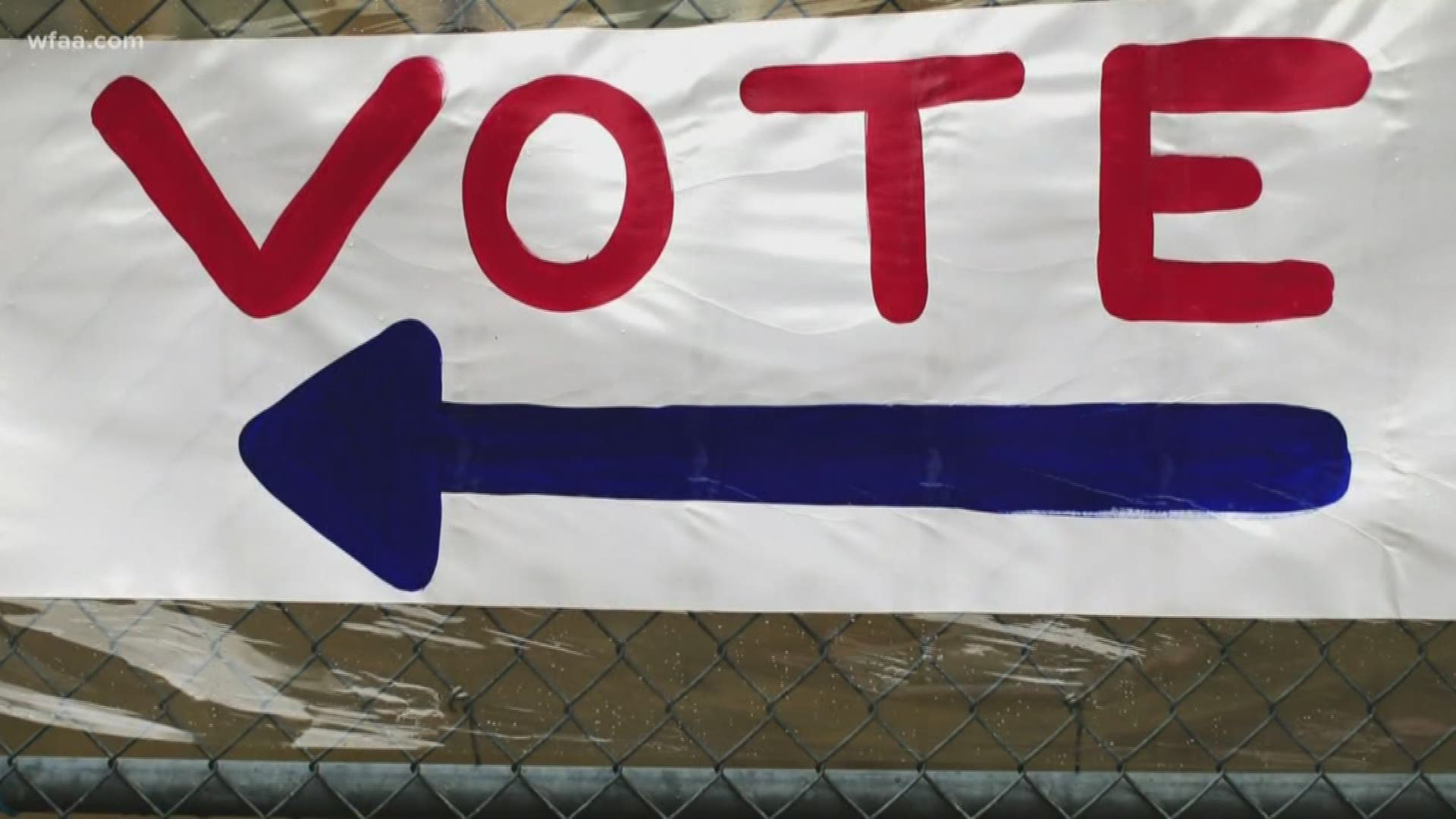AUSTIN, Texas — A month after WFAA discovered hundreds, perhaps thousands, of ineligible felons on voter databases and some who voted as recently as November, a state lawmaker is taking steps to close the legislative loopholes.
“Maintaining the list is one of the most important jobs of any registrar,” said state Rep. Stephanie Klick, R-Fort Worth.
Klick chairs the Texas House Elections Committee and introduced House Bills 3576 and 3578 on Monday.
“One of the interpretations of the election code is that voter registrars may do list maintenance on their voter rolls. House Bill 3576 seeks to require voter registrars to do list maintenance by changing a ‘may’ to a ‘shall,’” Klick explained.
Currently, the Texas Secretary of State alerts counties if it has a matching name of someone who dies, gets a final conviction for a felony and so on. But it’s up to the counties to remove those people from the rolls. And right now, though many comply, there is nothing requiring counties to follow through.
Klick’s legislation, HB 3576, makes it mandatory for counties to update their voter databases.
“If list maintenance is occurring, as it should, across the state, then House Bill 3576 will not change anything and the good work that all of our counties are doing will continue,” Klick said.
But Chris Davis, elections administrator for Williamson County and president of the Texas Association of Elections Administrators, was among those testifying against the legislation, arguing that it could cost counties too much money.
“We want to be able to act on official information we receive, not proactively begin a goose chase or a fishing expedition,” said Davis.
The Texas Democratic Party, former state representative Lon Burnham and a spokesperson from Temple Emanuel in Dallas testified saying the bill, as introduced, is too broad as currently written.
But Ed Johnson, the former director of voter registration in Harris County, said the legislation is overdue.
“I will tell you this is a very needed bill,” he explained. “There’s nothing in the code that requires the county to review if they’re dead, if they’re felons, if they’ve moved. None of that. Some counties just don’t ever look at them. They just ignore them.”
Alan Vera, a member of the Harris County GOP, also testified in support.
“This bill is clearly a step in the right direction,” he told the House Elections Committee. “We’re concerned that not enough is being done.”
Last month, a WFAA investigation exposed that ineligible felons, who are still currently serving their sentence, are currently voting in Texas, some as recently as November.
“I asked my probation officer, could I vote, and he said he didn’t know. I asked my daughter, she said I couldn’t vote. There was a guy out here giving out fliers, I asked him, and he gave me a number. They said I could vote. I went up to John Neely Brown and voted,” said one Dallas woman currently serving probation for a felony.
No one at the voting location questioned her right to vote, the felon added.
“No sir,” she told WFAA. “I gave them my ID because it is current, and no one said I couldn’t vote or that I was on probation or nothing like that.”
Klick’s second piece of legislation on this issue, House Bill 3578, addresses removing ineligible felons from counties’ databases.
“The purpose of HB 3578 is to create a dialogue about the problem we face when ineligible voters are allowed to vote,” she told committee members Monday. “Anytime you have somebody ineligible vote, it cancels out the vote of somebody is eligible to vote.”
HB 3578 bill requires the district court that determines the final order of felony conviction on an individual to directly notify the Texas Secretary of State that a person is no longer eligible to vote.
The measure essentially cuts out the Texas Department of Public Safety in this process which currently is a middleman for the information.
Lawmakers vote next week on whether to send the bills to the entire House for consideration.

